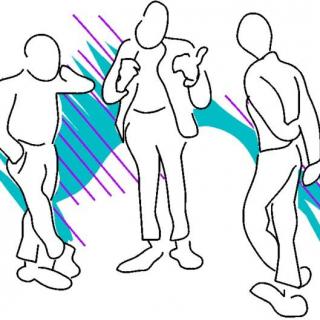
介绍:
20160616OU 一中二外锵锵锵三人行
今日话题:一句“你懂的”胜过“千言万语”
BK: Have you ever had a feeling but you weren’t quite sure how to describe it? We may have just the word, or words, for you.
NL: Yes, a researcher called Tiffany Smith from Queen Mary University in London has published a book called ‘The Book of Human Emotions’, which is a very grand title, and she has gone through all of these different words that exist in various languages around the world, but not necessarily in English, or maybe vice versa, as well, to come up with ways in which speakers of different languages express feelings differently to people of other languages. The first one is ‘Amae’, and it means ‘to lean on another person’s goodwill’, even as an adult, allowing somebody else to look after you as though you were a child in some way or another. See how lengthy a description I have to give of it in English? In Japanese, it’s ‘amae’.
BK: And this, I think, like quite a few of these, may be culturally specific in a certain way. Obviously the most basic emotions, every language is going to have.
WY: Also there’s another feeling that you guys might know how to describe in maybe three sentences, but now I have only one phrase to talk about it. So have you ever experienced the feeling when you’re standing on the top of a building, a very tall building, and then you have a feeling that you might want to jump? Or, when you’re facing a very dangerous situation, you might have a thought just flashing into your mind, what would happen if I jumped off of that bridge? So, that feeling, we can now talk about it in just one beautiful phrase, which is simply, ‘l’appel du vide’.
BK: Yes, yes, which if you didn’t guess, is French, there. American psychologists described this sort of phenomenon as the ‘high place phenomenon’, but the French literally means ‘the call of the void’.
WY: Exactly, and now the word has saved us a lot of time for description. And the other one which is also very interesting is that, have you ever experienced a situation where you and your big boss are trapped in only one elevator, and then maybe you find it very difficult to find any discussion topics or you find it very awkward? So, how to describe that in only one word, since I have already wasted time to talk about it in three sentences? It’s called ‘Malu’.
BK: I think, again that’s also a very common thing. Maybe you get into an elevator with your boss and it’s just the two of you. Suddenly, it just becomes very awkward, it becomes difficult to start talking, or respond, or anything.
WY: So next time, you can practice it. When lots of workers are in the elevator with your boss, you can come out to talk with your friends and say, “I had a Malu just now”.
BK: But it is interesting, because one of the things that I think is related to all this is, well, the relation of language and reality, which is a somewhat obscure, philosophical topic. But obviously, many of these things we may be aware of, or we’ve experienced these things, but without having a word to describe it, as opposed to, as Wu You has mentioned, several sentences, it’s harder to grasp the situation. Or, for example, you could experience this thing, but not really be aware of it as being a thing, had you not known the word, there. So having known these words, it may actually change your perception of this and may actually change your reality in a certain way.

